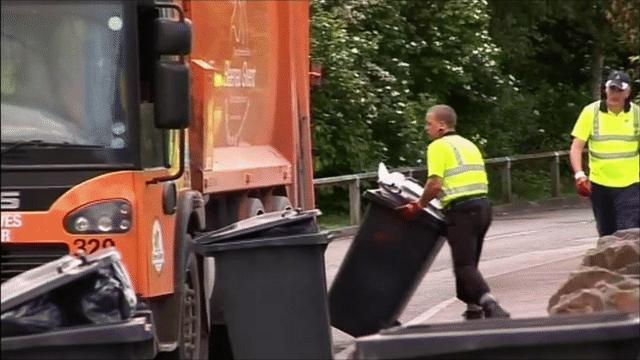Joining forces: Local councils urged to merge
- Published
- comments
It's another significant week for council re-organisation before assembly members disappear for their summer holidays.
The Welsh government gives its official response to the Williams Commission which recommended that the existing 22 local authorities should be reduced by around half through a series of mergers.
Ministers will also begin the law-making process to allow councils to merge voluntarily, and to impose financial restrictions on those that choose to do so.
The clear implication of this is that it will stop any emptying of reserves on vanity projects as authorities merge.
I'm told there were instances of this in the 1990s before the last re-organisation but I'm not sure how relevant it is this time round because of the state of their finances compared with 20 years ago.
I'm not sure if we'll learn anything new from the government's response.
The so-called "lines on the map" issues, which have dominated the discussions so far, are already in motion with Labour going through a final round of consultation this summer on reducing the number of councils from 22 to 12.
So it looks like 12 will be the number that will find itself into Labour's manifesto ahead of the next Assembly elections.
If it wins a majority then it will bring in legislation to force that to happen.
In the meantime it is encouraging councils to go through the process voluntarily by saying new merged local authorities will have their elections in 2018 instead of 2017.
'Short-termist'
But if Labour doesn't win an overall majority in 2016 then it needs to strike a deal with another party to force through the changes.
This is where things look difficult. The most likely candidate for agreement is Plaid but this appears more unlikely by the week.
Plaid wants a more radical approach and believes the proposed series of mergers is short-termist.
This has to be seen as a huge test of Carwyn Jones's leadership because he has spoken about it so much.
They say you pick your battles and this is one the first minister is happy to be seen to have chosen.
Away from the politics, there are lots of problems to resolve.
Here are a few:
How do you harmonise council tax levels?
What happens to all the contracts individual councils have signed with private companies if they merge with another authority?
And how much will re-organisation cost?
Carwyn Jones has disputed some of the larger estimates from the councils themselves but admits it is something the government is looking at.
There will be resistance from councils themselves.
Their main argument is that now is not the time because of financial constraints. There's already been a warning that they could see a budget cut of up to 4.5% next year.
That won't wash with many at the assembly. Labour and Plaid both say the financial position adds to the case for re-organisation.
In a debate at the assembly on the Williams report last week, Carwyn Jones gave an insight into his current thinking when he referred to a recent warning that 20 out of the 22 environmental health departments are facing cuts.
He said that was missing the point because the real question is why there are 22 environmental health departments in the first place.
In the same debate, the Labour AM Jenny Rathbone also added to the criticism of the 22 when she said good practice does not currently travel well.
She cited the example of highway maintenance in Powys which costs £2,559 per kilometre while in neighbouring Ceredigion it costs £4,115 per kilometre.
- Published13 April 2014
- Published10 March 2014

- Published21 January 2014

- Published20 January 2014

- Published15 January 2014